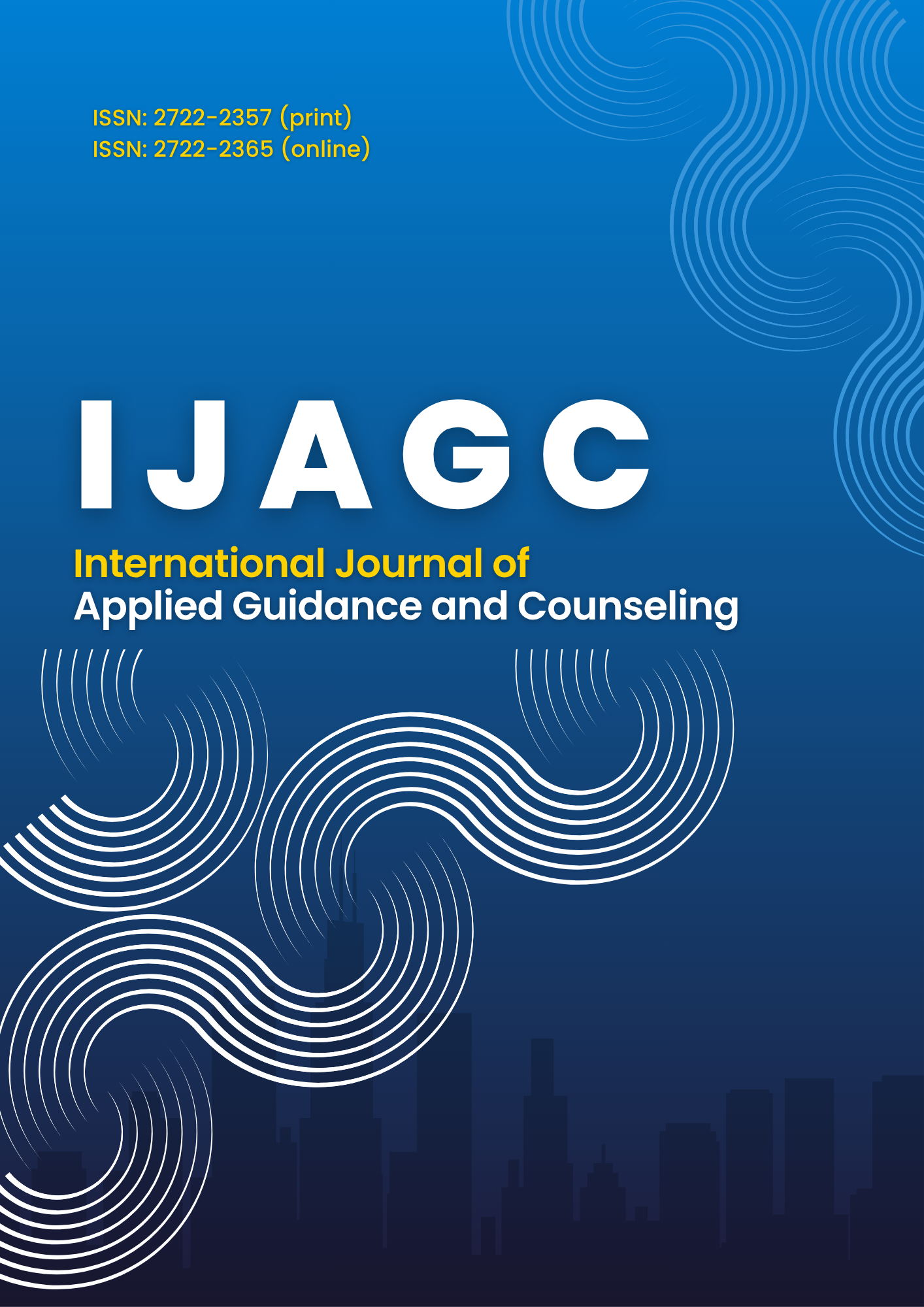The Phenomenon of Social Loafing among Guidance and Counseling Students Viewed from the Perspective of Gestalt Counseling Theory
DOI:
https://doi.org/10.26486/ijagc.v6i2.4902Abstract
Social loafing is the tendency of individuals to reduce their contribution when they are in a group. This phenomenon reflects maladaptive personal characteristics, which ideally should not be exhibited by Guidance and Counseling students at a university in Malang City. This study aims to explore views, actions, and causal factors of social loafing from the perspective of personality development based on Gestalt counseling theory. The research method used a qualitative phenomenological approach and Interpretative Phenomenological Analysis. The results of the study show that social loafing is a reflection of maladaptive personality in Gestalt counseling theory. This is indicated by views related to an incomplete awareness of roles when working in a group. In addition, there is also evidence of behavior that is less motivated and responsible as part of a group. The causes of the social loafing phenomenon identified are a rigid self-image and failure to maintain values due to environmental influences. This research contributes to guidance and counseling, particularly in higher education, with considerations for implementing both preventive and corrective services related to social loafing. Furthermore, it can also serve as a reference for the education sector to provide a group work environment that reduces social loafing among members.
Downloads
Published
Issue
Section
License
Copyright (c) 2025 Erna Puji Lestari, Riskiyana Prihatiningsih, Ella Faridati Zen

This work is licensed under a Creative Commons Attribution-ShareAlike 4.0 International License.
Authors who publish with IJAGC: International Journal of Applied Guidance and Counseling agree to the following terms:
Authors retain copyright and grant the Insight right of first publication with the work simultaneously licensed under a Creative Commons Attribution License (CC BY-SA 4.0) that allows others to share (copy and redistribute the material in any medium or format) and adapt (remix, transform, and build upon the material) the work for any purpose, even commercially with an acknowledgement of the work's authorship and initial publication in Insight. Authors are able to enter into separate, additional contractual arrangements for the non-exclusive distribution of the journal's published version of the work (e.g., post it to an institutional repository or publish it in a book), with an acknowledgement of its initial publication in Insight.
Authors are permitted and encouraged to post their work online (e.g., in institutional repositories or on their website) prior to and during the submission process, as it can lead to productive exchanges, as well as earlier and greater citation of published work (See The Effect of Open Access).












